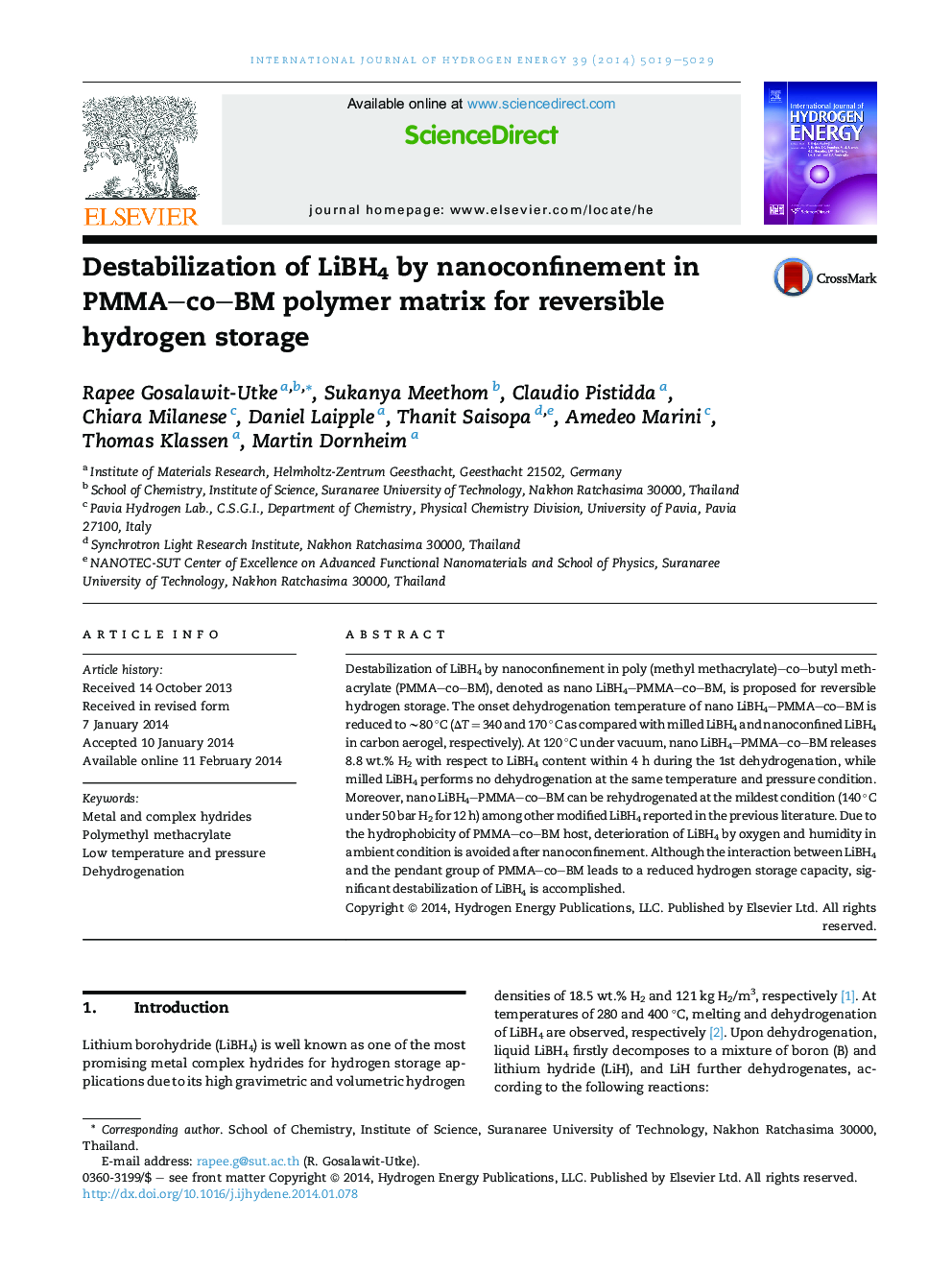| Article ID | Journal | Published Year | Pages | File Type |
|---|---|---|---|---|
| 1281270 | International Journal of Hydrogen Energy | 2014 | 11 Pages |
•Onset dehydrogenation is 340 °C lower than milled LiBH4.•Reversibility is obtained under mild condition (140 °C under 50 bar H2 for 12 h).•Deterioration of LiBH4 by O2 and humidity is avoided.
Destabilization of LiBH4 by nanoconfinement in poly (methyl methacrylate)–co–butyl methacrylate (PMMA–co–BM), denoted as nano LiBH4–PMMA–co–BM, is proposed for reversible hydrogen storage. The onset dehydrogenation temperature of nano LiBH4–PMMA–co–BM is reduced to ∼80 °C (ΔT = 340 and 170 °C as compared with milled LiBH4 and nanoconfined LiBH4 in carbon aerogel, respectively). At 120 °C under vacuum, nano LiBH4–PMMA–co–BM releases 8.8 wt.% H2 with respect to LiBH4 content within 4 h during the 1st dehydrogenation, while milled LiBH4 performs no dehydrogenation at the same temperature and pressure condition. Moreover, nano LiBH4–PMMA–co–BM can be rehydrogenated at the mildest condition (140 °C under 50 bar H2 for 12 h) among other modified LiBH4 reported in the previous literature. Due to the hydrophobicity of PMMA–co–BM host, deterioration of LiBH4 by oxygen and humidity in ambient condition is avoided after nanoconfinement. Although the interaction between LiBH4 and the pendant group of PMMA–co–BM leads to a reduced hydrogen storage capacity, significant destabilization of LiBH4 is accomplished.
